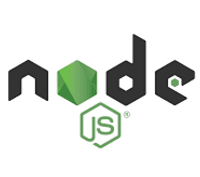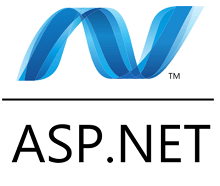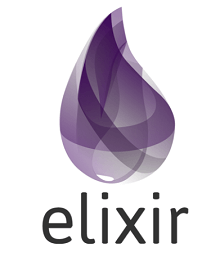Node.js AlternativesWhat exactly is Node.js?
It is an open-source and cross-platform JavaScript runtime environment. It is a versatile instrument that is utilized for almost any task. Node.js runs on the V8 JavaScript engine using various platforms, including Windows, Linux, Unix, Mac OS X, etc. This allows Node.js to be very efficient. Instead of creating a new thread for each request, a Node.js application runs in a single process. Node.js contains a set of asynchronous I/O primitives in its standard library to prevent JavaScript code from stalling. In general, Node.js libraries are meant to be non-blocking, with blocking behaviour being the exception rather than the rule. When Node.js performs an I/O activity, such as reading from the network or accessing a database or filesystem, instead of halting the thread and spending CPU cycles waiting for a response, Node.js resumes the actions as the answer is received. This allows Node.js to handle thousands of concurrent connections with a single server without the overhead of thread concurrency control, which may be a significant source of mistakes. Millions of front-end developers who write JavaScript for the browser may now build server-side and client-side code without learning a new language, thanks to Node.js. The most current ECMAScript standards may be used without difficulty in Node.js since users do not have to wait for all of their users to upgrade their browsers - the user chooses which ECMAScript version to use by changing the Node.js version. Users can also enable specific experimental features by running Node.js with flags. Why Node.js?Node.js uses asynchronous programming. A web server's most common operation is to open a file on the server and return the content to the client. PHP or ASP responds to the file request as follows:
The following is how Node.js processes a file request:
Node.js eliminates the waiting and simply continues with the subsequent request. It is memory efficient because it executes as single-threaded, non-blocking, asynchronous programming. Features of Node.js
Alternatives to Node.jsBelow, we discuss some of the best alternatives to Node.js: 1. ASP.NET
It is an open-source, server-side web app framework that offers sophisticated API real-time development, dynamic web page creation, Microservices, and web-based apps. It is powered by Microsoft and allows developers to construct interactive and data-driven apps that can be accessed through the Internet. This server-side technology includes a variety of controls such as buttons, text boxes, forms, and so on. It allows an Internet server to execute computer codes. It is a free framework that uses HTML, CSS, and JavaScript and is best for building websites and/or APIs that employ real-time technologies like Web Sockets. Features of ASP.NET:
2. AngularJS
It has helped to facilitate the building and testing of apps with MVC and MVVM architecture as an open-source, online, and mobile application framework powered by Google. It is a well-known toolkit for developing the most fantastic app development framework. It is an entirely expandable JavaScript framework that integrates seamlessly with third-party libraries. It may be inserted into HTML pages using the script tag. It is said to be great for single-page apps and is simple to learn. It is a framework for dynamic web programmes that may use HTML as a template language. Features of AngularJS:
3. Ext JS
It is a popular and complete JavaScript app framework that works well as a Node.js alternative for developing interactive, data-rich, and cross-platform online apps using DOM scripting technologies DHTML and Ajax. It's a unified component framework for creating single-page apps for any modern device. Over 140 well-tested and pre-integrated UI components with stunning performance are included, including grids, pivot grids, HTML5 calendars, trees, lists, forms, D3 adapters, menus, panels, toolbars, and so on. Sencha's cross-platform tools help create full apps that are effective. Features of Ext JS:
4. Elixir
It is a well-known alternative to Node.js. It is a dynamic, functional language for developing scalable and maintainable systems. It is open-source and works well with Mac, Windows, and Linux. Elixir develops scalable applications with the Erlang programming language since the code is horizontally and vertically scalable. There is effective resource management which helps numerous processes run concurrently and with equal efficacy. It provides its customers with rapid, easy, and simple development and code maintenance. Its fundamental principle lends itself well to the development of multiprocessor systems. It has certain unique qualities, such as hot code replacement, fault tolerance, and the ability to work in real time. Features of Elixir:
5. Deno
It is a free, open-source, and secure JavaScript and TypeScript runtime. It is built with V8 - Google's runtime engine for JavaScript, Rust, and Tokio, supporting Mac, Windows, Linux, and other platforms. Deno's features are created so that they can improve Node.js's capabilities. It strongly emphasizes security, as the runtime cannot access the network, file system, or scripts. Deno loads modules via URLs, exactly like browsers. It compiles the whole source into a single file, providing a fantastic opportunity for developers to use Deno as an alternative to Node.js. Features of Deno:
6. Rebol
It is a well-known cross-platform programming language for network connection and data sharing. It helps create a client- and server-side Internet applications, multimedia, database, and other services. It is a multi-paradigm approach that includes many typing disciplines and data types. Rebol is said to be best suited for tiny domains. Data are simple to exchange, synchronization is simple, and archiving files is straightforward and rapid. It's a safe platform with strong data production, exchange, storage, retrieval, and management capabilities. Features of Rebol:
7. Go
The Go programming language, powered by Google, is dependable, quick, and practical software syntactically similar to C. It has notable features like garbage collection, structural typing, memory safety, etc. It is simple to learn and master open-source language. It has a robust, standardized library with built-in concurrency. There is a growing ecosystem of tools, communities, and partners. It is a highly typed, compiled language designed to develop scalable and concurrent applications. Developers may use Google Cloud Function in Go to build their serverless computing platform. Features of Go:
8. Ceylon
It is a general-purpose programming language with a structure similar to C# and Java. Ceylon has a reputation for producing numerous programmes while collaborating as teams. It is a statically typed object-oriented language with a blocked system. The compiler does a comprehensive and broad sort of checking. For statements, there is lexical scoping and recursive syntax. Ceylon is a robust, scalable, and fun development environment. Developers prefer it because of its cross-platform interoperability. Its code is modular and arranged into packages and modules, with modular repositories providing excellent support. Features of Ceylon:
9. Ruby
It has a fan base and has been a popular interpreted programming language for many years. It, like Python, is a general-purpose language used for various applications such as prototyping, proof of concept, data analytics, and so on. Ruby on Rails, the programming framework with the highest popularity quotient, is its most common implementation. It is quicker and supports the .NET and Java Virtual Machine (JVM). It is a scripting language used in many forms of application development, including front-end, back-end, and web development. It has high-level grammar and is thus scripted accordingly, indicating that it is an interpreted language rather than a compiled one. Features of Ruby:
10. Perl
It utilizes the powerful family of two interpreted programming languages, high-level and general-purpose. It comprises Perl and Raku and has a growing user base from various work sectors. It provides its customers with powerful text processing capabilities and seems to be shell scripting, C/C++ interface, and SED. It is expandable with several globally available modules. This general-purpose language is mainly used for text processing, web development, system administration, GUI development, network programming, and other tasks. Because it is a highly competent and feature-rich language, Perl is a versatile and powerful alternative to Node.js. Features of Perl:
11. React
It is a JavaScript library developed by Facebook to construct dynamic and interactive apps and improve online web and mobile applications' UI/UX designs. React is an open-source and component-based front-end toolkit that helps developers to arrange the applications' user interfaces accordingly. By splitting code into components, React makes it easier to debug. Features of React:
12. Django
Lawrence journal world created it in 2003 and published it under the BSD licence in July 2005. DSF (Django Software Foundation) currently maintains its development and release cycle. It is a Python language web application framework. It is designed using the MVT (Model View Template) approach. Django's quick development characteristic makes it quite demanding. After gathering customer requirements, it takes less time to construct an application. This framework has a well-known tagline: "The web framework for perfectionists on schedule". We can build web apps in a fraction of the time by utilizing Django. Django is meant to handle much of the configuration automatically, allowing us to focus solely on application development. Features of Django:
Choosing a Viable Node.js AlternativeAs the saying goes, everything has an alternative, and Node.js is no exception. Apart from Node.js, the well-compiled Node.js alternatives that are mentioned above give depth into the present technologies and are doing well. However, the relevance and popularity of Node.js remain almost unaffected. Organizations must determine which one amongst these alternatives must be used based on criteria such as resources, talents, project budgets and timeframes, organizational goals, processes, and so on.
Next TopicMilk Alternatives
|
 For Videos Join Our Youtube Channel: Join Now
For Videos Join Our Youtube Channel: Join Now
Feedback
- Send your Feedback to [email protected]
Help Others, Please Share









